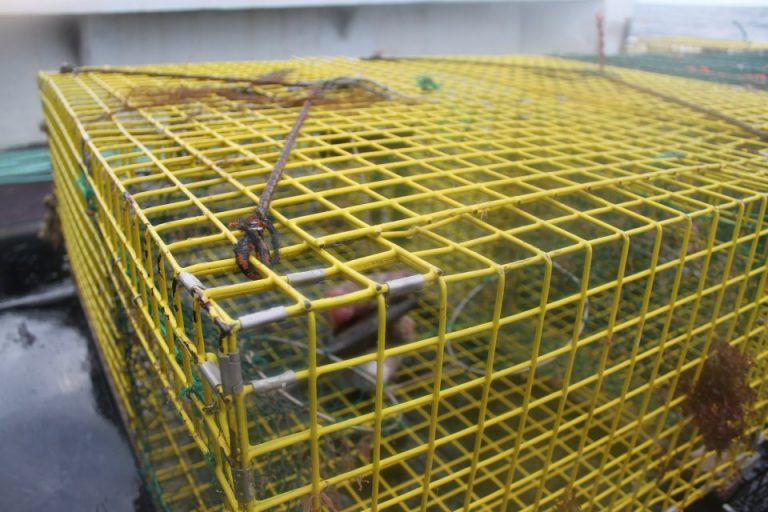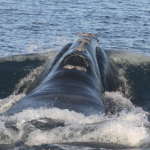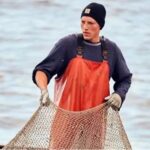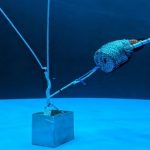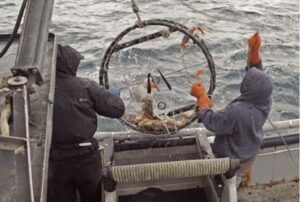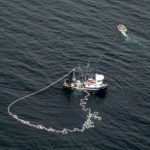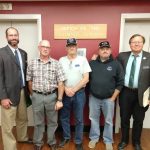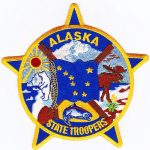FISH-NL issues warning to DFO on changes to harvester registration in Atlantic Canada; NL system not working
FOR IMMEDIATE RELEASE Tuesday, Jan. 30th, 2018
The Federation of Independent Sea Harvesters of Newfoundland and Labrador (FISH-NL) has warned Fisheries and Oceans (DFO) that its fish harvester registration system in this province isn’t working.
“The Professional Fish Harvester Certification Board (PFHCB) is not working here in terms of a conflict of interest with the FFAW-Unifor, and it’s not working for people attempting to enter the fishery,” says Ryan Cleary, President of FISH-NL.
“DFO should not give the PFHCB any more authority than it already has, review its relationship with the FFAW-Unifor for conflict of interest, and insist that the Board modernize its qualifying criteria.”
DFO is looking for feedback on proposed changes to the requirements for fish harvester registration in Atlantic Canada. The deadline for feedback is Wednesday, Jan. 31st.
Newfoundland and Labrador and Quebec set up fish harvester registration boards in the late 1990s, taking over the responsibility from DFO. The proposed changes would allow DFO to align regulations in other provinces.
In a letter today to DFO (see below), FISH-NL warned the department to proceed with extreme caution, and to revisit the system set up in NL because of the conflict of interest between the PFHCB and FFAW-Unifor.
While the PFHCB says it operates independently from the union, the two jointly own the St. John’s office building where they’re both located. As well, most of the PFHCB’s board members are representatives of the FFAW-Unifor.
DFO has held direct consultations with inshore harvesters around Newfoundland and Labrador in recent months, and one of the issues consistently raised is the PFHCB. More specifically, how hard is it for new people to break into the fishery.
FISH-NL was told by numerous harvesters who attended those meetings they were reluctant to speak out against the PFHCB, the union, or DFO policy with FFAW-Unifor representatives in the room — fearing it would negatively impact their applications for accreditation.
NL harvesters also complain the PFHCB — as gatekeeper into the NL fishery — has actually implemented rules that are “eliminating” the inshore fishery, making it incredibly difficult to acquire a fishing licence.
DFO has set a deadline of Wednesday, Jan. 31st for feedback, which can be sent to this e-mail: [email protected]
Contact Ryan Cleary: 682 4862
Jan. 30, 2018
National Fisheries Policy
200 Kent St.
Ottawa, ON
K1A 0E6
Email: [email protected]
To whom it may concern,
As President of the Federation of Independent Sea Harvesters of Newfoundland and Labrador (FISH-NL), a union with a growing membership of 3,000-plus inshore harvesters, I’m writing to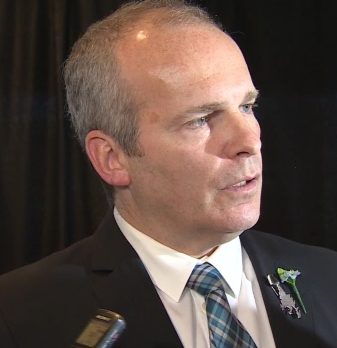 formally lodge our concern/objection with proposed changes to the requirements for fish harvester registration in Atlantic Canada.
formally lodge our concern/objection with proposed changes to the requirements for fish harvester registration in Atlantic Canada.
FISH-NL warns the Government of Canada to proceed with extreme caution, and to revisit changes implemented years ago in Newfoundland and Labrador because of the conflict of interest created between the Professional Fish Harvesters Certification Board (PFHCB), and FFAW-Unifor, the union that currently represents inshore fish harvesters in collective bargaining.
NL established the first professional certification regime in 1997, but some harvesters have questioned the validity of the PFHCB from Day 1, arguing they were never given an opportunity to formally vote the PFHCB into existence.
The PFHCB is a provincial corporation established by the NL government under the Professional Fish Harvesters Act, 1997. Prior to that point, Fisheries and Oceans (DFO) was responsible for the registration, assessment and categorization of NL fish harvesters.
The PFHCB’s objectives are outlined under Section 4 of the Act and include a mandate to: operate and maintain a fish harvester registration system; be responsible for defining the standards for professionalization; assess the qualifications and issue certificates of accreditation to qualifying harvesters; and promote the interests of fish harvesters in a profession group.
DFO policy dictates that NL residents seeking to fish commercially must be registered with the PFHCB. Likewise, anyone seeking to acquire a federal species licence must be recognized as a professional Level II fish harvester by the PFHCB.
The PFHCB has said it operates “independently, and at an arm’s length basis” from the FFAW-Unifor, but that’s not the case. Most harvesters see the union and PFHCB as one and the same — and in direct conflict of interest.
Not only is the PFHCB located in the same St. John’s office building as the FFAW-Unifor, but the two actually own the property together. As well, while seven of the PFHCB’s 15 board members must be representatives of the FFAW-Unifor, some positions are often vacant, meaning the union effectively controls the Board.
In recent months, and for the first time in recent memory, DFO has held direct consultations with inshore harvesters around Newfoundland and Labrador, and one of the issues consistently raised is the PFHCB.
More specifically, how hard is it for new people to break into the fishery.
FISH-NL was told by numerous harvesters who attended those meetings they were reluctant to speak out against the PFHCB, the union, or DFO policy with FFAW-Unifor representatives in the room — fearing it would negatively impact their applications for accreditation.
NL harvesters also complain the PFHCB — as gatekeeper into the NL fishery — has actually implemented rules that are “eliminating” the inshore fishery, making it incredibly difficult to acquire a fishing licence.
For example, to qualify for a core enterprise, a harvester must first work for five years as a full-time crewman (making $10,000-15,000 a year in the small-boat fleet), and if they hold a full-time job outside the fishing season (May to October) they’re immediately disqualified.
FISH-NL recommends that DFO should not give the PFHCB any more authority than it already has.
In fact, in light of the steady and serious decline in the number of inshore harvesters in recent years and complaints from potential new entrants, DFO should insist the PFHCB modernize its qualifying criteria.
Given declining fish stocks and reduced catches, harvesters are having a harder and harder time relying solely on income from the fishery in order to provide for their families — which too often makes them ineligible for higher accreditation.
Perspective enterprise owners question how they can obtain a Level 1 or Level II certification when there isn’t enough catch for them and their families to live exclusively on fishing.
Bradley Abbott, an apprentice harvester from Lourdes in western Newfoundland since 2005, has been unable to get his Level 1 because he hasn’t been able to rely solely on income from the fishery.
The money just isn’t there.
In Abbott’s words, “I am from Newfoundland, married to a fellow Newfoundlander, raising my children here in our home province, trying to earn and spend in my home province in hopes that one day soon I may obtain a licence and earn my family income solely from the fishery … However, with the current system of the Professional Fish Harvesters (Certification Board) it is literally impossible to do so.”
In summary, FISH-NL recommends DFO be extremely wary of potential conflicts of interests in downloading registration responsibility to private entities linked to existing fishery organizations.
Further, FISH-NL advises DFO to investigate the PFHCB’s relationship with the FFAW-Unifor for conflict of interest, with an eye to making the organization truly independent. DFO must also insist the PFHCB modernize its qualifying criteria.
Sincerely,
Ryan Cleary,
President, FISH-NL


































